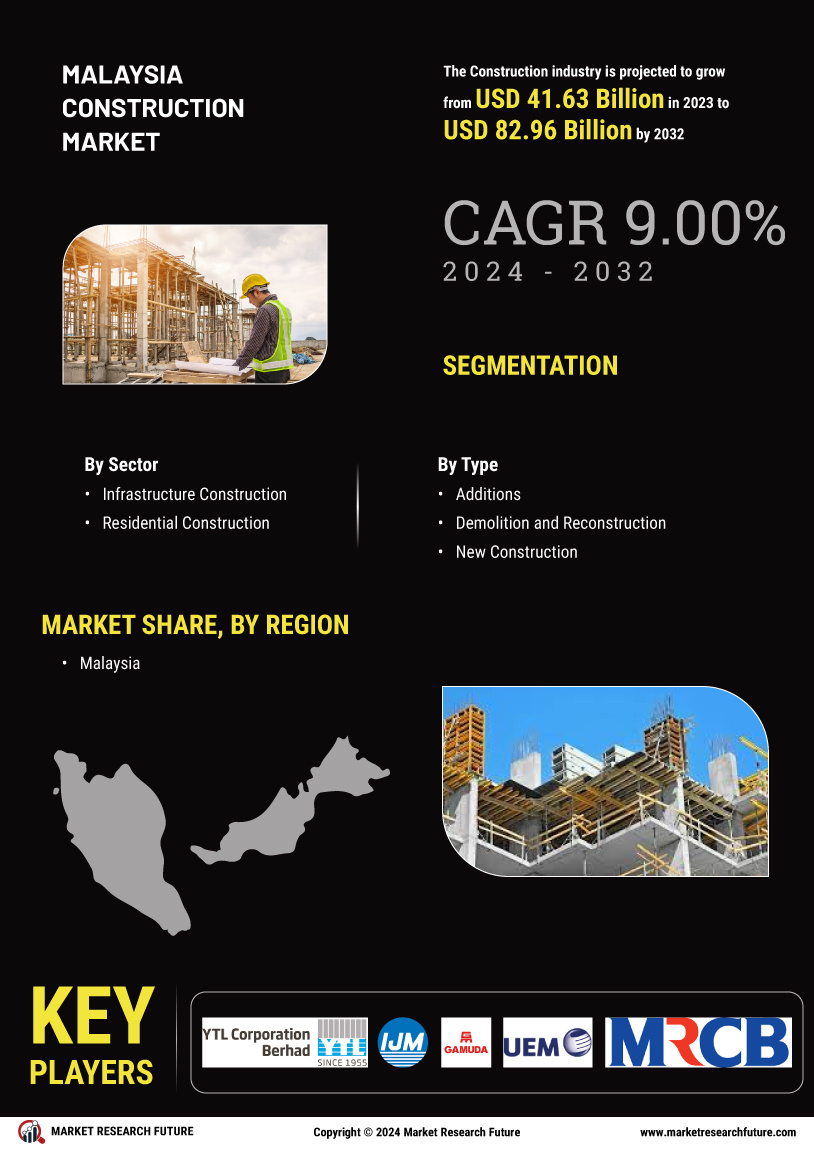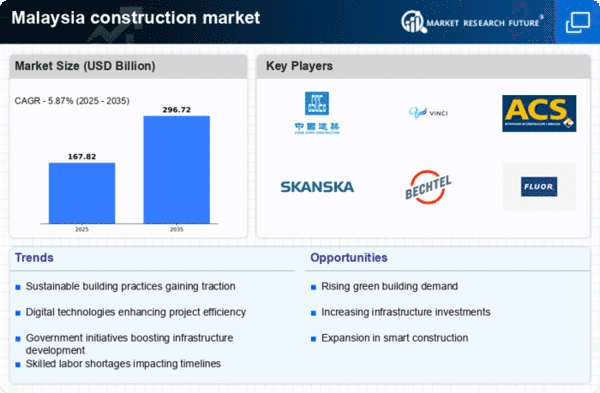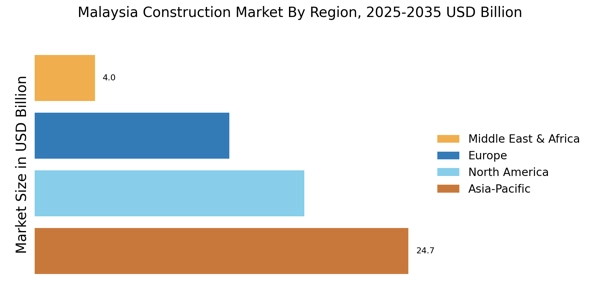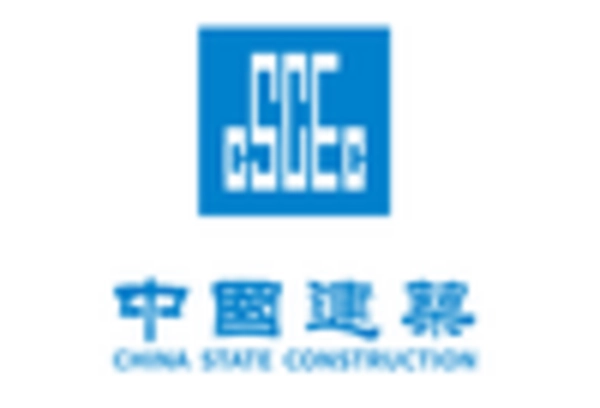Technological Innovations
Technological advancements are reshaping the Malaysia Construction Market, introducing new methodologies and efficiencies. The adoption of Building Information Modeling (BIM) and prefabrication techniques is becoming increasingly prevalent, enhancing project delivery and reducing costs. The integration of smart technologies, such as IoT and AI, is also streamlining construction processes, improving safety, and optimizing resource management. According to industry reports, the use of technology in construction is expected to increase productivity by up to 30% over the next few years. This technological evolution not only enhances the quality of construction projects but also attracts investments, as stakeholders seek to leverage innovative solutions. As a result, the role of technology in the Malaysia Construction Market is likely to expand, driving growth and competitiveness.
Sustainable Development Goals
The emphasis on sustainable development is increasingly influencing the Malaysia Construction Market. As environmental concerns gain prominence, the construction sector is adapting to incorporate sustainable practices. The Malaysian government has set ambitious targets to reduce carbon emissions and promote green building initiatives. This includes the implementation of the Green Building Index, which encourages the adoption of energy-efficient designs and materials. The market for green construction is projected to grow significantly, with an estimated increase of 20% annually. This shift towards sustainability not only addresses environmental challenges but also aligns with global trends, positioning Malaysia as a leader in sustainable construction practices. Consequently, the focus on sustainability is likely to reshape the landscape of the Malaysia Construction Market.
Foreign Direct Investment (FDI)
Foreign Direct Investment (FDI) is a significant driver of growth in the Malaysia Construction Market. The country has become an attractive destination for foreign investors due to its strategic location and favorable investment climate. In recent years, Malaysia has witnessed a surge in FDI inflows, particularly in the construction and real estate sectors, with investments exceeding RM 50 billion in 2024 alone. This influx of capital not only supports large-scale infrastructure projects but also fosters knowledge transfer and innovation within the local construction industry. The government's efforts to streamline regulations and enhance the ease of doing business further bolster investor confidence. Consequently, the positive impact of FDI on the Malaysia Construction Market is expected to continue, facilitating sustainable growth and development.
Urbanization and Population Growth
The rapid urbanization in Malaysia is a pivotal driver for the Malaysia Construction Market. As urban areas expand, the demand for residential, commercial, and infrastructure projects intensifies. The population in urban centers is projected to reach 80% by 2030, necessitating significant investments in housing and public facilities. This trend indicates a robust pipeline of construction projects aimed at accommodating the growing urban populace. Furthermore, the Malaysian government has initiated various urban development programs, which are expected to stimulate further growth in the construction sector. The increasing need for modern infrastructure, such as transportation networks and utilities, underscores the importance of this driver in shaping the future of the Malaysia Construction Market.
Government Initiatives and Investments
Government initiatives play a crucial role in propelling the Malaysia Construction Market. The Malaysian government has committed substantial resources to enhance infrastructure development, with an estimated investment of RM 100 billion allocated for various projects over the next five years. These initiatives encompass transportation, energy, and public facilities, which are essential for economic growth. Additionally, the government's focus on improving connectivity through projects like the East Coast Rail Link and the Kuala Lumpur-Singapore High-Speed Rail is expected to create a ripple effect, stimulating demand for construction services. Such strategic investments not only bolster the construction sector but also contribute to job creation and economic stability, reinforcing the significance of government involvement in the Malaysia Construction Market.

















